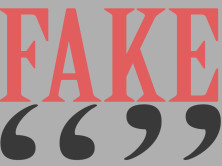
(Credit: TheTimes.Co.Uk)
UK News Corp-owned The Times of London is appealing a 2006 libel case to the UK Supreme Court, Journalism.co.uk reported.
The Times’ 2006 story reported “on a police investigation into allegations against Gary Flood, an officer with the Metropolitan Police,” according to Journalism.co.uk.
According to a 2010 Journalism.co.uk article, Flood argued that The Times’ report suggested he “had abused his position as a police officer by corruptly accepting £20,000 in bribes in return for selling intelligence.” However, Journalism.co.uk reported that a police investigation found Flood wasn’t guilty of the accusations.
The Guardian explained “this is a case about allegations, judgment and balance. It concerns the limits of the protection given by the law to the reporting of unverified allegations.”
The newspaper argued its story was “protected by qualified privilege” according to the Reynolds test. But, in 2009, the High Court ruled that since The Times’ online story didn’t report that Flood was later found not guilty, The Times didn’t meet the Reynolds test. The Times appealed that ruling last year, and the court agreed with the high court.
According to a 2005 Guardian article, the Reynolds test says the media can “print untrue and defamatory information if they could prove it was in the public interest to publish it and that it was the product of responsible journalism.” As UK Parliament’s website explains, the defense calls on any defamatory information to be “comment” (opinion) and not fact.
According to the Parliament’s website:
“Comment must be relevant to the facts to which it is addressed. It cannot be used as a cloak for mere invective. But the basis of our public life is that the crank, the enthusiast, may say what he honestly thinks as much as the reasonable person who sits on a jury. The true test is whether the opinion, however exaggerated, obstinate or prejudiced, was honestly held by the person expressing it.”
The appeals court decided that The Times “should have only reported the information released by the MPS press office, identifying him as an officer under investigation, and not details of the allegations made against him.” This is the second case that the court will test the Reynolds defense, according to Journalism.co.uk.





